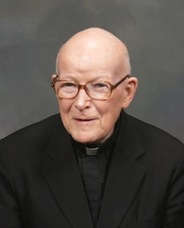Today’s first reading and Gospel ask the question (Mar 6, 2011): how, in fact, are we grounded in the Lord? Have I allowed Christ to enter into my life sufficiently and without reservation? Am I aware that Christ takes the initiative in calling me to a deeper conversion and that I have to respond? In your lectio divina today, set out to ground yourself in the Lord.
Pope Benedict’s message for the 2011 World Youth Day participants draws this line of thinking out:
“We … want to be able to see Jesus, to speak with him and to feel his presence even more powerfully. For many people today, it has become difficult to approach Jesus. There are so many images of Jesus in circulation which, while claiming to be scientific, detract from his greatness and the uniqueness of his person. That is why, after many years of study and reflection, I thought of sharing something of my own personal encounter with Jesus by writing a book. It was a way to help others see, hear and touch the Lord in whom God came to us in order to make himself known. Jesus himself, when he appeared again to his disciples a week later, said to Thomas: “Put your finger here and see my hands. Reach out your hand and put it in my side. Do not doubt but believe” (Jn 20:27). We too can have tangible contact with Jesus and put our hand, so to speak, upon the signs of his Passion, the signs of his love. It is in the sacraments that he draws particularly near to us and gives himself to us. Dear young people, learn to “see” and to “meet” Jesus in the Eucharist, where he is present and close to us, and even becomes food for our journey. In the sacrament of Penance the Lord reveals his mercy and always grants us his forgiveness. Recognize and serve Jesus in the poor, the sick, and in our brothers and sisters who are in difficulty and in need of help.”
Lent begins with Ash Wednesday on March 9. What is on your list of Bona Opera, your good works? Chapter 49 of the Rule of Saint Benedict speaks of the monk (here, all people) keeping Lent in front of our eyes all the time. He urges us, therefore, to do good, to keep purity in our hearts and minds by refraining from evil. Saint Benedict exhorts us to restrain ourselves from sinful habits and to devote time to prayer of the heart, fasting, lectio divina, compunction, ascetism, and charitable work.
How are you going to build your spiritual life on solid ground? In what ways are you going to be a spiritual father and mother to another? Will you pray, fast and give alms to the good works of the Church uniting your intentions with the Sacred Heart of Jesus for sake of poor, needy, the Church, the Pope, sinful people and priests, etc? Will you study the Word of God and spend time in prayer before the Blessed Sacrament?


